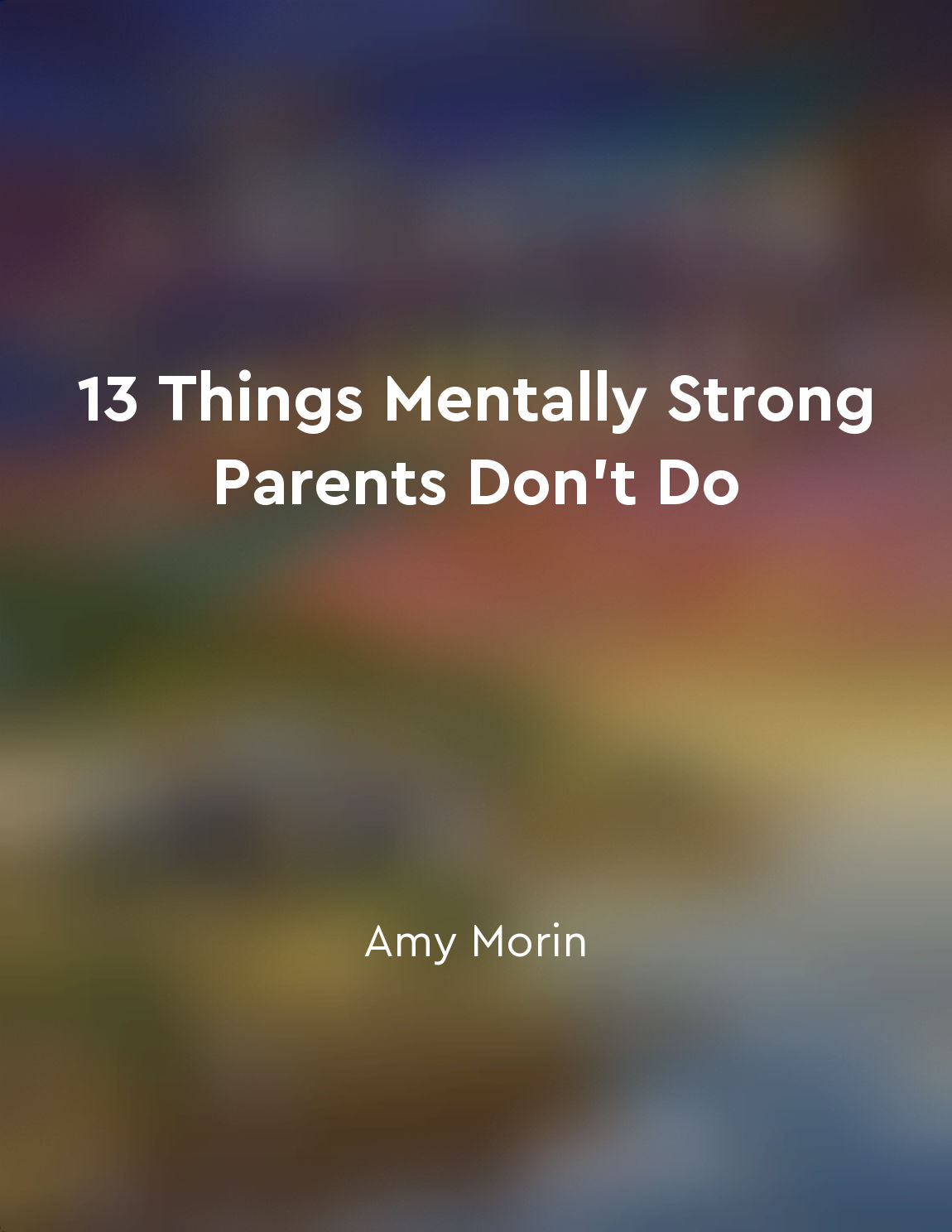Repairing the relationship after a discipline incident is crucial from "summary" of No-Drama Discipline by Daniel J. Siegel,Tina Payne Bryson
When a discipline incident occurs, our children often feel disconnected and rejected. This may lead to feelings of shame and unworthiness, which can have a lasting impact on their emotional well-being. It is crucial for us to repair the relationship after such incidents, as it allows us to reconnect with our children and rebuild trust. By repairing the relationship, we show our children that we still love and care for them, even when we have had to discipline them for their behavior. Repairing the relationship involves validating our children's emotions and helping them make sense of what happened. We need to empathize with their perspective and listen to their side of the story. This helps our children feel understood and valued, which is essential for building a strong parent-child bond. By taking the time to repair the relationship, we demonstrate to our children that we are committed to supporting them through difficult moments. Additionally, repairing the relationship allows us to teach our children important life skills, such as problem-solving and conflict resolution. By working through the incident together, we can help our children understand why their behavior was inappropriate and how they can make better choices in the future. This not only strengthens our relationship with our children but also helps them develop essential skills for navigating the challenges they will face in life.- Repairing the relationship after a discipline incident is not just about moving past the conflict. It is about showing our children that we are there for them unconditionally, even when things go wrong. This deepens the connection between us and our children and fosters a sense of security and trust that is essential for their emotional growth and development. By prioritizing the repair of our relationship after discipline, we create a strong foundation for building a healthy and resilient parent-child bond.
Similar Posts
Body language can vary depending on the child's age and developmental stage
As children grow and develop, their body language naturally evolves along with them. A toddler may use exaggerated gestures and...
Foster a strong and positive relationship with your child
To have a strong and positive relationship with your child, it is important to spend quality time with them. This means setting...
Encourage reflection and mindfulness
Encouraging reflection and mindfulness is a crucial concept when it comes to helping children develop a more balanced and integ...
Collaborate with your child to solve problems
The most effective way to solve problems with your child is not by imposing your will upon them, but by working together with t...

Refrain from Comparing Your Child to Others
When you compare your child to others, you set them up for feelings of inadequacy and insecurity. Whether you're pointing out h...
It's important to celebrate boys' unique interests and strengths
Boys are unique individuals with their own set of interests and strengths. It is crucial for parents and caregivers to recogniz...

Parenthood is a transformative and lifechanging experience
Jennifer Senior paints a vivid picture of the profound impact of parenthood in her book "All Joy and No Fun". She delves deep i...
Collaborative Problem Solving is key
Collaborative Problem Solving is a key concept in helping children with behavioral challenges. This approach involves working t...
Don't let bullies get away with it
If you allow bullies to get away with their actions, you are giving them permission to continue their harmful behavior. By not ...
Consult your own experience, neglect not the anecdotal
When you consult your own experience, you have the opportunity to learn valuable lessons that can guide you through life's chal...

